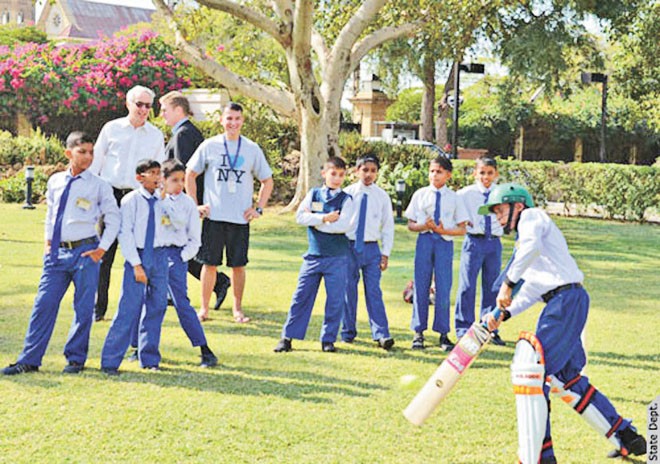
Our educationists have little or no knowledge of sports as part of learning process for young students.

Whenever I listen to the wise men of sports in Pakistan at different forums, the focus is on the "incompetent" sports federations, "lack of funding" or "shortage" of sports talent and facilities in the country.
These issues are there, but the main issue is that our understanding of sports is very limited. The state minister for formal education and professional training Muhammad Balighur Rehman while explaining the new education policy said that initial years of a child are very important in his or her developing cognitive abilities.
The Academy of Education Planning & Management (AEPM) which was established in 2013 in Islamabad was tasked to act as a "think tank" and give inputs in formulating the new education policy.
I am astounded to notice that our educationists have little or no knowledge of sports as part of learning process for young students.
Most academicians and parents consider sports as waste of time.
The AEPM in Islamabad collaborates with different UN bodies and World Bank and develops critical indicators on qualitative education. I wonder how any formal or informal education in any country can be considered complete, holistic and qualitative, without the component of sport as a tool of education, motor and life skill development of children.
Sports have been the cornerstone of all education systems since the days of Plato and Aristotle. Plato touched sports many times in his dialogues, talking about its utility in the education of young people. According to Plato, all education is directed towards the development of virtue. The value of sport is above all in development of the virtue of fortitude.
The European society later became the greatest beneficiary of sports as part of education when great French educationist and social scientist Pierre de Coubertin revived Olympic movement and Olympic Games in 1849.
Coubertin in his vision of Olympic Games states, "Why did I restore the Olympic Games? To ennoble and strengthen sports, to ensure their independence and duration, and thus to enable them to fulfil the educational role incumbent upon them in the modern world."
The evolution of sports as part of education in the recent past has resulted into the movement of "Physical Literacy". Physical literacy provides a solid foundation for children to develop the skills, knowledge and attitude they need for a wide variety of physical activities. These skills enable individuals to make healthy, active choices.
Learning of basic motor skills like hop, skip, kick, run, catch, overarm throw, sidearm strike, hop and dodge doesn’t require large play grounds. Those children who never have the opportunity to develop these basic skills experience difficulties when participating in sports at later stages of life.
The letter E in education stands for Enjoyment. Any learning experience which is not joyful is likely to result in more dropout rates at an early stage of education and our education system in Pakistan is an ideal example in this regard where children run away from schools because of corporal punishments, harsh learning environments and absence of sports facilities.
The letter D stands for Diverse. Education has to be holistic and diverse, giving due attention to motor skills and life skills.
The letter U stands for Understanding, which is achieved by creating well planned lessons that ensure the linking of all activities to achieve curricular expectations.
The letter C in education stands for Character. It entails developing traits such as fair-play, cooperation, and team work.
The acronym thus continues with letter A for ability, T for totality, I for imagination, O for ongoing and N for nurturing.
Physical literacy is divided into four standards. The long-term athlete development model (LTAD) is used at elementary schools to teach Fundamental Movement Skills (FMS) so that when children take up competitive sports by the age of 16 or 17 the coaches don’t have to work on motor skill development but rather start working on sport-specific skills.
This will be the first occasion since Pakistan started participating in Olympics that there will be no Green-shirts in Rio Olympics men’s hockey. A senior official of Pakistan Hockey Federation, when approached to comment on the situation, attributed it to "lack of government support and media giving more coverage to cricket".
What hockey and other national sports federations have failed to understand is that in a system’s context, they are not getting physically literate sportspersons at appropriate age, who can be trained by expert coaches and trainers to become sportspersons of international standard, capable of giving sustainable quality international performance.
The recent performance of Pakistan cricket team in England reflects our basic flaws, ingrained in the development of motor and life skill development of our players. Sports in Pakistan will never recover unless the basic issues are addressed and not only the sportsmen but the educationists also start taking interest in programs like "Sport Literacy" and "Sport Education" for producing a broad base of sportspersons, capable of performing at the international level.
AEPM and HEC should seek services of sport scientists and sport sociologists who can give valuable input for chalking out a comprehensive education system for our youth in which sport is used as a tool of education.